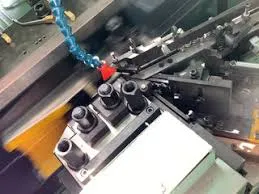
-
 Afrikaans
Afrikaans -
 Albanian
Albanian -
 Amharic
Amharic -
 Arabic
Arabic -
 Armenian
Armenian -
 Azerbaijani
Azerbaijani -
 Basque
Basque -
 Belarusian
Belarusian -
 Bengali
Bengali -
 Bosnian
Bosnian -
 Bulgarian
Bulgarian -
 Catalan
Catalan -
 Cebuano
Cebuano -
 Corsican
Corsican -
 Croatian
Croatian -
 Czech
Czech -
 Danish
Danish -
 Dutch
Dutch -
 English
English -
 Esperanto
Esperanto -
 Estonian
Estonian -
 Finnish
Finnish -
 French
French -
 Frisian
Frisian -
 Galician
Galician -
 Georgian
Georgian -
 German
German -
 Greek
Greek -
 Gujarati
Gujarati -
 Haitian Creole
Haitian Creole -
 hausa
hausa -
 hawaiian
hawaiian -
 Hebrew
Hebrew -
 Hindi
Hindi -
 Miao
Miao -
 Hungarian
Hungarian -
 Icelandic
Icelandic -
 igbo
igbo -
 Indonesian
Indonesian -
 irish
irish -
 Italian
Italian -
 Japanese
Japanese -
 Javanese
Javanese -
 Kannada
Kannada -
 kazakh
kazakh -
 Khmer
Khmer -
 Rwandese
Rwandese -
 Korean
Korean -
 Kurdish
Kurdish -
 Kyrgyz
Kyrgyz -
 Lao
Lao -
 Latin
Latin -
 Latvian
Latvian -
 Lithuanian
Lithuanian -
 Luxembourgish
Luxembourgish -
 Macedonian
Macedonian -
 Malgashi
Malgashi -
 Malay
Malay -
 Malayalam
Malayalam -
 Maltese
Maltese -
 Maori
Maori -
 Marathi
Marathi -
 Mongolian
Mongolian -
 Myanmar
Myanmar -
 Nepali
Nepali -
 Norwegian
Norwegian -
 Norwegian
Norwegian -
 Occitan
Occitan -
 Pashto
Pashto -
 Persian
Persian -
 Polish
Polish -
 Portuguese
Portuguese -
 Punjabi
Punjabi -
 Romanian
Romanian -
 Russian
Russian -
 Samoan
Samoan -
 Scottish Gaelic
Scottish Gaelic -
 Serbian
Serbian -
 Sesotho
Sesotho -
 Shona
Shona -
 Sindhi
Sindhi -
 Sinhala
Sinhala -
 Slovak
Slovak -
 Slovenian
Slovenian -
 Somali
Somali -
 Spanish
Spanish -
 Sundanese
Sundanese -
 Swahili
Swahili -
 Swedish
Swedish -
 Tagalog
Tagalog -
 Tajik
Tajik -
 Tamil
Tamil -
 Tatar
Tatar -
 Telugu
Telugu -
 Thai
Thai -
 Turkish
Turkish -
 Turkmen
Turkmen -
 Ukrainian
Ukrainian -
 Urdu
Urdu -
 Uighur
Uighur -
 Uzbek
Uzbek -
 Vietnamese
Vietnamese -
 Welsh
Welsh -
 Bantu
Bantu -
 Yiddish
Yiddish -
 Yoruba
Yoruba -
 Zulu
Zulu
HS Code for China Thread Rolling Machines and its Applications in Manufacturing
Understanding the HS Code for China Thread Rolling Machines
Introduction
In international trade, Harmonized System (HS) codes play a vital role in the classification of goods. These codes help in identifying products, standardizing trade agreements, and facilitating the accurate collection of trade statistics. Thread rolling machines, crucial for manufacturing bolts, screws, and other fasteners, have specific HS codes. In this article, we will explore the relevance of thread rolling machines, particularly in the context of Chinese manufacturing, and provide insights into their HS code designation.
What Are Thread Rolling Machines?
Thread rolling machines are industrial machines used to create external threads on cylindrical workpieces. This process involves deforming the material rather than cutting it, which can enhance the strength and durability of the final product. Thread rolling is widely used in the production of high-volume precision components, especially in sectors such as automotive, aerospace, and construction. The efficiency of thread rolling machines contributes significantly to the manufacturing speed and cost-effectiveness of threaded parts.
The Importance of HS Codes
The HS code system, developed by the World Customs Organization (WCO), categorizes goods based on their nature and attributes. Each code is a six-digit number, although countries may extend it to facilitate local regulations and tariffs. HS codes are crucial in various aspects of trade, such as customs duties, export/import regulations, and trade statistics.
HS Code for Thread Rolling Machines
For thread rolling machines manufactured in China, the commonly referenced HS code is 8457.10.00. This classification falls under the category for machinery for working metal, specifically pertaining to machines that perform threading operations. Understanding this code is essential for manufacturers, exporters, and importers as it aids in compliance with international trade laws and ensures accurate tariff classification.
china thread rolling machine hs code

China's Role in Manufacturing Thread Rolling Machines
China is one of the world's leading manufacturers of machinery, including thread rolling machines. The country has established a robust industrial infrastructure, allowing it to produce high-quality machines at competitive prices. Chinese manufacturers are known for their ability to innovate and improve existing technologies, making them significant players in the global market.
With the rise of automation and advanced manufacturing techniques, Chinese companies have embraced the latest technology to enhance the efficiency and performance of their thread rolling machines. This has led to increased demand for these machines domestically and internationally, further solidifying China's position as a key exporter in this sector.
The Global Market and Trade Considerations
The demand for thread rolling machines is not limited to China. Countries across the globe seek to import these machines to boost their manufacturing capabilities. Importers must be aware of the HS code when purchasing these machines to ensure compliance with local customs regulations and to avoid delays in shipping.
Furthermore, understanding the HS code can aid in negotiating better trade agreements, as it allows stakeholders to identify tariffs and other related costs. This knowledge can be particularly beneficial for companies looking to expand their operations internationally.
Conclusion
Thread rolling machines play a critical role in modern manufacturing, particularly in sectors that require precise and durable threaded parts. The classification of these machines under the HS code 8457.10.00 simplifies their identification in international trade, facilitating smoother transactions and compliance with regulatory standards. As China continues to lead in the manufacturing of such machinery, understanding the implications of HS codes and trade regulations will remain essential for businesses engaged in global commerce. Whether as manufacturers, suppliers, or end-users, stakeholders in the industrial sector must stay informed and proactive regarding these classifications to optimize their operations and enhance their competitive edge in the global market.
